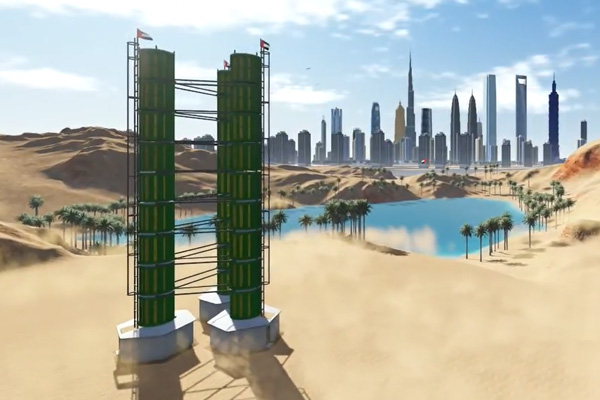Smart Building I - Revolution in Construction 2018.04.19
Construction costs of prefabricated multi-family houses using composite-wood technology are 30% lower than traditional methods. The implementation time for investments is halved, and the level of energy efficiency increases by 60%. Such a building was erected in Warsaw as part of the “Smart Building-Wooden Construction” program.
On April 19, an international conference entitled “Smart Building – Wooden Construction” took place. The conference presented the project of the first multi-family building made using composite-wood prefabricates. The building was constructed by companies from the Smart Technology Capital Group (www.smarteu.pl) as part of the “Smart Building-Wooden Construction” program. It includes 17 rental apartments ranging from 42 m² to 67 m², a service area of 250 m², 16 underground garages, and 3 external parking spaces. The total area of the building is 2099.45 m², with a usable area of 1121 m².
Poland lacks approximately 3 million apartments, both independent and for rent. Smart Building construction technology allows for a 50% faster implementation of investments, thus gradually filling this gap. In the future, it will be possible to implement complete Smart City neighborhoods, including modern construction technologies, IT solutions, and technical infrastructure. The Smart Building program presented by the Group supports the government’s “Housing Plus” program. It provides tools for the rapid implementation of investments by combining the competencies of cooperating entities. According to the Program’s assumptions, projects can be implemented in cooperation with local governments and for individual clients.
Composite-wood construction has many advantages. It allows for computer-controlled production, resulting in the unlimited possibility of creating ready-made elements for building objects tailored to individual ideas and design expectations. The main advantage of buildings based on composite-wood technology is the rapid construction pace. Prefabricated houses ready for occupancy are built in just a few months. Object elements such as walls, ceilings, and roofs are delivered to the construction site, where they are placed on a previously prepared foundation slab within a few days. Roof covering and other assembly work take place over the next 3-4 weeks, allowing for the completion of the closed shell state within a few months.
Reducing construction time by approximately 50% is not the only advantage of such construction. The fast construction pace contributes to a reduction in labor costs. Additionally, work can be carried out throughout the year, regardless of weather conditions. Mechanization of the production process allows for the creation of objects in accordance with applicable standards and principles of Polish construction law, ensuring an exceptionally high standard of quality. Other advantages include excellent acoustic insulation, the possibility of installing photovoltaic panels or solar collectors, and the management of the construction process by a single assembly team.
The event was attended by dignitaries such as H.E. Yousif Al Sabri – Ambassador of the United Arab Emirates, a representative of the Hungarian embassy, and Ahmed Khalil Al-Ani – Consul of Iraq, as well as speakers and event partners: Andrzej Konieczny, Director General of State Forests, and Jaromir Tomaszewski, Managing Director of the Environmental Protection Bank. Event partners also included T-Mobile Poland, Ernst & Young, Emirates & Europe Business Development Cluster, Investment Service Center, and Smart Future Home.
As part of the “Smart Building-Wooden Construction” program, we are looking for partners interested in developing composite-wood construction, primarily developers, local governments, construction companies, and investment funds wishing to develop such projects.









